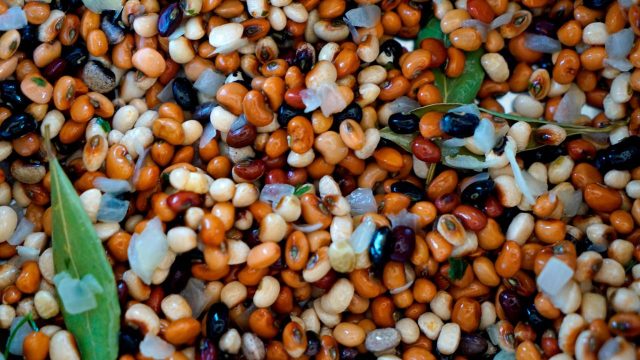
Beans are “having a moment”, said Andrew Ellson in The Times. “Small, dry and often flavourless” the humble legume has never been particularly “glamorous” – but its fortunes have changed of late.
Major supermarkets have seen “soaring” demand, with Waitrose’s canned beans sales up 122% year-on-year, while sales of chickpeas have surged by more than 400% for the retailer.
A major “culprit” in the bean renaissance is newcomer to the market, Bold Bean Co, said House & Garden. The brand’s butter beans are “fat, creamy, wonderful nuggets of joy”: it’s no surprise the company has amassed a dedicated online following.
Beans are certainly making “waves” among foodies, and it’s clear the enthusiasm is “here to stay”. There are so many benefits to integrating beans into your diet: “they’re a healthy source of protein for anyone trying to cut out meat”, low in fat, high in minerals and a “very sustainable” food source.
But “versatility” is what really makes beans stand out. On the one hand, they can be “an excellent foil for fatty meats like hunks of pork or as a purée with lamb”, but they also make a good pasta substitute. You can happily “chop and change” ingredients based on what’s in the fridge – “there is, simply, no right way to cook a bean dish and the fun, for me at least, has been in the process”.
The simplest recipes can pack the biggest punch, and charred tomato beans are as simple as they sound. Easy to fix in a rush, just add stock and pan-softened tomatoes with chilli and garlic to a tin of beans for a “hot, tasty, nourishing bowl of food on the table in 15 minutes”.
The nutritional value doesn’t just help us: growing beans alongside other crops can be brilliant for the environment. Many beans are “nitrogen fixers”, converting nitrogen from the atmosphere into the ground, which ends up making the soil “more fertile for other crops”, food writer Eleanor Maidment told The Guardian.
Beans can quickly become the “bedrock” of your cooking, Jenny Chandler, author of “Super Pules”, told the publication. “Salads, soups, purees, curries, stews and even puddings” can be heightened by the addition of legumes.
Best of all, they are faff free. There is a common misconception that pulses have to stew for hours: this is simply not the case. Don’t be “put off by the idea that you have to soak dried pulses in advance”, said Maidment. “I am rarely organised enough to do so, but thankfully there’s a huge range of jarred and canned varieties that require no prep and are hugely convenient.”
Protein-packed, affordable and easy to cook with, the humble legume is having a moment






